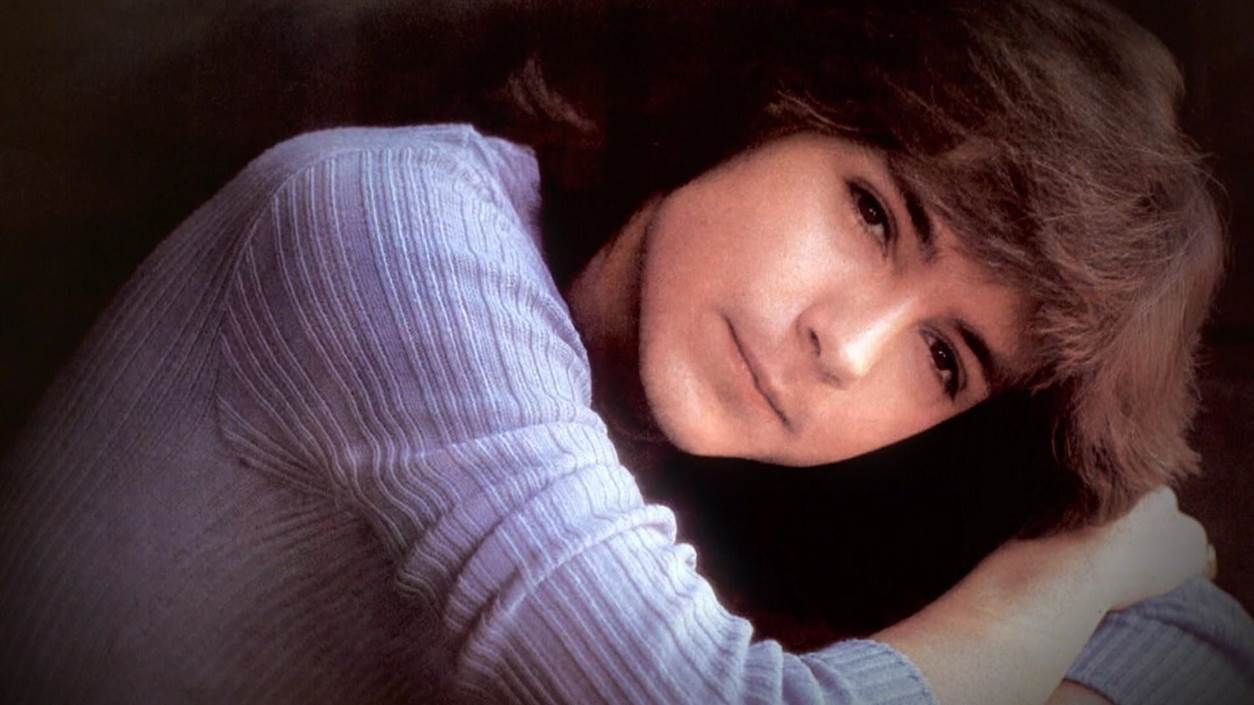
“The Last Kiss” is David Cassidy returning not with teenage fireworks, but with grown-up tenderness—proof that sometimes the most powerful goodbye is the one you sing softly.
In the popular memory, David Cassidy is often framed in bright, early-’70s colors: television gloss, arena screams, the dizzy speed of being adored before you’ve even had time to understand yourself. That’s precisely why “The Last Kiss” feels so arresting. It doesn’t arrive as a relic of that teen-idol chapter. It arrives as a reappearance—a later, more reflective Cassidy stepping back into the room with a steadier gaze.
“The Last Kiss” was released in 1985 on Arista (UK catalogue ARIST 589) and first entered the UK chart on 23 February 1985. It went on to peak at #6 on the Official Singles Chart and spent 9 weeks on the UK chart. That chart run matters, not just as a statistic, but as a narrative: a voice many listeners associated with youth suddenly reintroduced itself with maturity—still romantic, but less breathless; still warm, but more aware of the cost of feeling.
The song belongs to Cassidy’s 1985 album Romance, produced by Alan Tarney—and in a telling industry twist, the album was released chiefly outside the United States (notably in Europe and other markets) rather than as a major U.S. campaign. In that context, the UK success of “The Last Kiss” reads like a small vindication: not a nostalgia wave, but a genuine welcome back.
Creatively, the track is closely tied to Alan Tarney, who produced the record and co-wrote much of the Romance material. Multiple catalog sources credit the songwriting for “The Last Kiss” to David Cassidy and Alan Tarney, underlining that this wasn’t merely a cover dropped into an album—it was part of a specific, curated comeback sound. And then there’s the detail that gives the record an extra shimmer of 1985 pop history: George Michael appears on the song (as noted in standard album references), lending a subtle lift that never overwhelms Cassidy’s lead, but does add a faint, modern glow to the edges.
What makes “The Last Kiss” linger is its emotional posture. This is not the melodrama of a breakup staged for the spotlight. It’s closer to the moment after the argument, after the pleading, after the bargaining—when you’re left with that one final human ritual: a goodbye that tries to be gentle even when it hurts. The title itself is devastatingly simple. A “last kiss” isn’t just romance; it’s a boundary drawn by time. It’s the recognition that some doors close quietly, without a slam—yet the quietness doesn’t make them any less final.
Musically, the song wears the mid-’80s palette—sleek, polished, nocturnal—yet it keeps a certain softness, as if the production understands that the lyric can’t be pushed too hard without breaking its spell. Cassidy’s voice here doesn’t chase the eager urgency of his early hits; it leans into a more measured sincerity. He sounds like someone who has learned that love isn’t only the thrill of being chosen—it’s also the dignity of accepting what cannot be held forever.
And that’s the meaning at the heart of “The Last Kiss.” It’s the bittersweet courage of making an ending kind. Not rewriting history, not pretending the goodbye is painless, not acting strong for applause—just allowing the moment to be what it is. The song doesn’t demand that the listener take sides or assign blame. It simply preserves that fragile, universally familiar instant: when closeness is still possible for a few seconds, even though the future has already moved on.
In the long arc of David Cassidy, this track is quietly significant. Its UK Top 10 success in 1985 isn’t just a footnote—it’s evidence that his artistry could live beyond the era that first made him famous, and that his voice could carry a different kind of romance: less innocent, perhaps, but deeper in its truth.